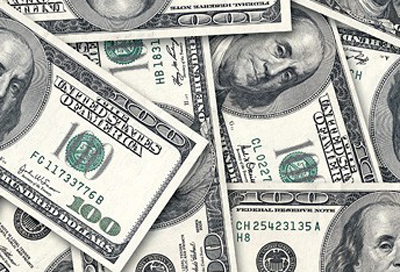Friday, 11 September 2015 04:09
 NEW YORK: The dollar fell on Thursday as global stock markets outside America turned downward and economic data sent contrary signals on whether the U.S. Federal Reserve would raise U.S. interest rates next week.
NEW YORK: The dollar fell on Thursday as global stock markets outside America turned downward and economic data sent contrary signals on whether the U.S. Federal Reserve would raise U.S. interest rates next week.
European stocks broke a three-day run of gains with a drop of nearly 1.5 percent following a difficult session in Asia, as data showed a decline in Chinese car sales and slowing capital spending in Japan. Wall Street traded up about 1 percent after recovering from early losses.
The U.S. government reported that the number of Americans filing new applications for unemployment benefits fell last week, a bullish signal about the labor market that bolsters arguments that the Fed will lift rates next week or later in 2015.
But a separate government report, seen as an important inflation reading, showed U.S. import prices falling 1.8 percent last month as the cost of petroleum and a range of goods dropped. Import prices slid 0.9 percent in July.
“The data capture the Fed’s conundrum: evidence of a tight labor market and evidence of low, if not moderating inflation,” said David Gilmore, partner at Foreign Exchange Analytics in Essex, Connecticut.
The Fed’s policy-setting committee on Sept. 16 and 17 may end its meeting with an announcement of a rate increase.
The dollar index, a basket of six currencies valued against the greenback, was last off 0.60 percent and has moved in tandem with global equities during recent months.
The dollar was down 0.70 percent against the euro at $ 1.1283 and up 0.10 percent against the yen at 120.60 yen.
The yen slipped after comments by a Japanese lawmaker renewed speculation the Bank of Japan would loosen policy again.
Sterling reached a two-week high of $ 1.5475 after minutes from the Bank of England’s latest policy meeting showed an 8-1 vote to keep rates at 0.5 percent.
New Zealand’s dollar regained some ground after losing more than 2 percent and was last off against the U.S. dollar at $ 0.6308, for a net loss of 1.20 percent.
The kiwi had tumbled after New Zealand’s central bank cut interest rates and said it might ease further if China’s economy keeps slowing. But the currency recovered as the offshore Chinese yuan rose more than 1 percent against the dollar.
Brazil’s currency, the real , fell nearly 3 percent to 3.9 per U.S. dollar, a 13-year low, before backing off to 3.8584 per dollar, still more than 2 percent down on the day.
Standard & Poor’s cut the country’s sovereign rating to junk late Wednesday.


























